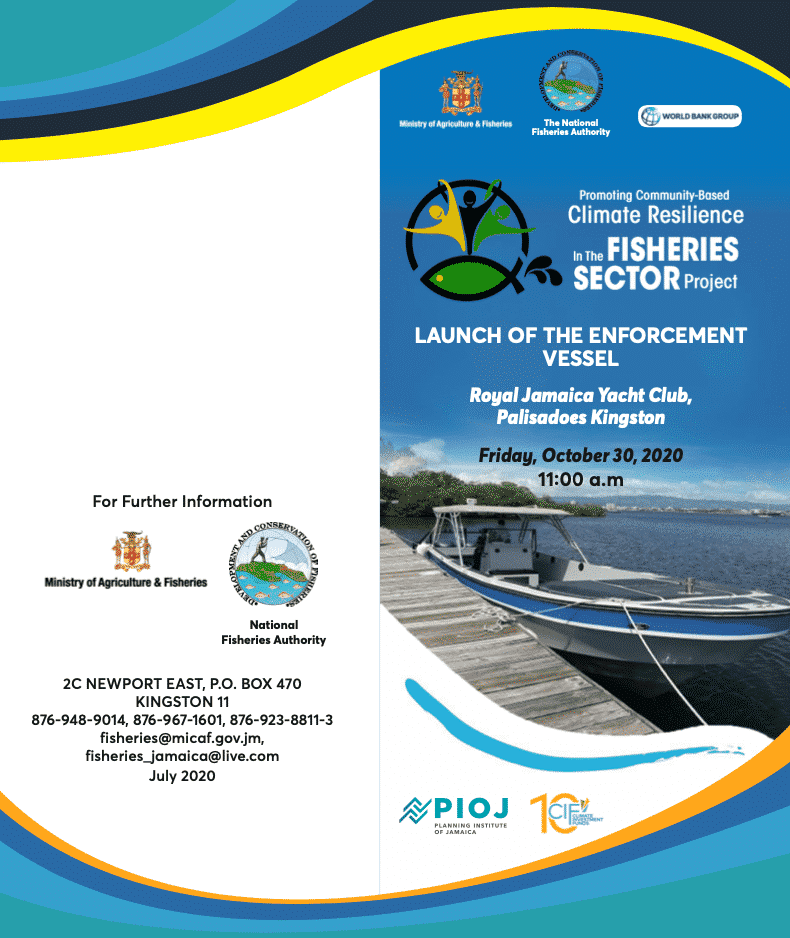“The world is waiting for a vaccine! There is no vaccine coming for climate change!”
With this urgent appeal, the World Bank handed over a Law Enforcement Vessel to the Jamaican National Fisheries Authority (NAF) to take better and more decisive action against illegal, unreported, and unregulated fishing (IUU) on its territories including the Exclusive Economic Zone (EEZ).
IUU fishing depletes fish stocks, destroys marine habitats, distorts competition, puts honest fishers at an unfair disadvantage, and weakens coastal communities.
IUU fishing accounts for an estimated 15 to 30 percent of global annual catches, according to some studies.
I – Illegal
Illegal fishing refers to fishing activities by vessels from one country in the jurisdiction of another country without permission or other activities of fishing vessels that contravene fisheries laws.
U – Unreported
Unreported fishing refers to activities that are unreported or deliberately misreported to proper authorities.
U – Unregulated
Unregulated fishing refers to fishing activities in areas where there are no applicable conservation or management measures, such as outside any country’s EEZ and not under the jurisdiction of Regional Fisheries Management Organizations (RFMOs).
Improving the governance and Strengthening institutions
“The closest that will get to a vaccine for climate change is to make the right investments today for a low carbon economy, investments in climate-resilient infrastructure, adopting climate-smart practices and technologies, as well as improving the governance and strengthening institutions. This vessel that we have acquired here, is exactly doing that. Strengthening a key institution in enforcing the laws that govern the sustainable management of Jamaica’s coast and fisheries sector.” (Ozan Sevimli, Worldbank)
Jamaica is an archipelagic state
“And this will unlock gains in inclusiveness and sustainability in sectors like the fisheries sector and increase opportunities for income. In this regard and considering that Jamaica is an archipelagic state with marine space over 25 times its terrestrial space, it is important to consider these things within a larger picture. What is becoming clear is that the climate-resilient path of Jamaica will need to go through investments into its blue economy (as sustainable and integrated development of a number of economic sectors, fisheries and aquaculture, included).” (Ozan Sevimli, Worldbank)
